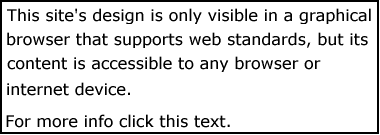
Eventually you will find my thoughts on this subject here: Why I think that feminist theory together with the history and sociology of science gives important insights into the current sciences and how they work. Why the analysis of science is crucial to change it in order to invent new ways of knowing the world, a postcolonial, feminist science.
However being in graduate school (not in women's studies but in physics) limits my time to write anything. I'm still trying to reconcile my theoretical knowledge of how current science works and what should be different with the reality of practical work I have to do to get a degree in physics...
Meanwhile you'll just find some recommendations of books here, which cover these subjects:
This collection of articles gives a great overview of the development of this field in the last years. Most articles are accessible also to people who don't major in women's studies. If you want to learn about the central debates and get a look at many theories without reading lots of monographs this is the right book.
This anthology focuses on race, gender and sciences and collects a variety of essays in six main parts:
It links recent feminist theories of science with anti-racist projects, shows connections between colonialism and imperialism and the sciences, addresses technologies in health and reproduction and their impact on developing countries and much more. While I haven't read every essay, those which I did read were always interesting.
This book is an introduction to postcolonial science studies and how they relate to feminist theories. Sandra Harding also explains her concept of Strong Objectivity as a way to deal with the cultural situatedness of knowledge.
This book is simply a classic. Sure the debates and theories evolved quite a bit since the early eighties, but this book is still a good analysis of a crucial period in the history of science from a feminist point of view.
Donna Haraway's theories are not always easy to understand, but no list of recommendations should miss her works. Her thoughts and theories about feminism and technoscience are controversial but never dull. She explores technoscience as a drama and illustrates it with paintings and ads.
The world of high energy physicists seen through the eyes of an anthropologist. A fascinating view.
A look at the history of women in the sciences during the 17th and 18th century, and the role of gender in the developement of modern science.
There will be some more recommendations later.
All artwork, graphics and photos on these pages are © Rat Creature,
except where otherwise noted.
Don't copy or distribute them without my permission. You may
download or print them for personal, non-profit use only.